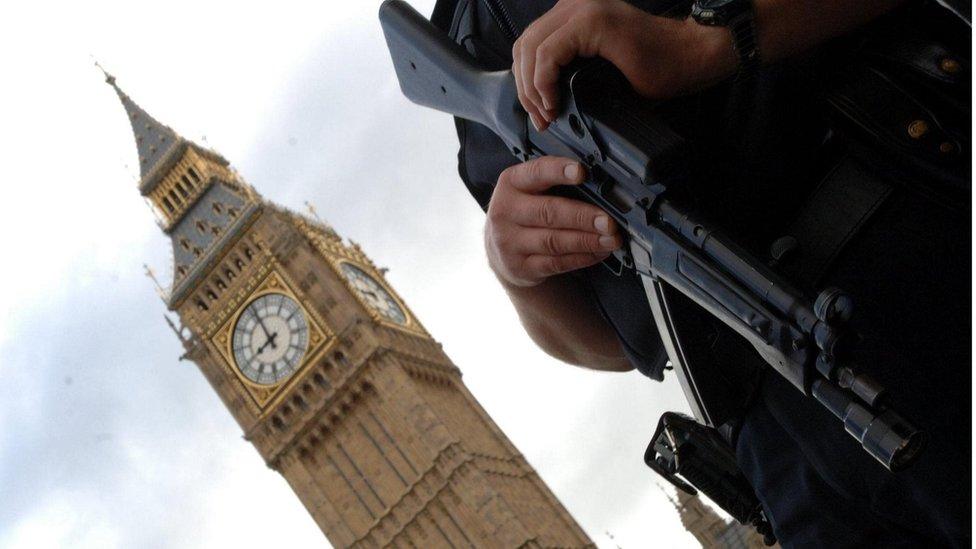MPs back bill to authorise MI5 and police crimes
- Published

MPs have backed the latest stage of a bill to allow undercover agents to commit crimes on operations.
The government says the legislation will give a "sound legal footing" for those who work to "protect the public".
But backbenchers are divided over the implications for human rights and civil liberties, and many have concerns over if the right safeguards are in place.
Former Tory minister David Davis has warned the bill could "impinge on innocent people".
During a debate on the bill, shadow home secretary Nick Thomas-Symonds said Labour would not oppose it at this stage.
But he said the party would "seek to improve [it] on the vital issue of safeguards, so the public can have confidence in the process and our law enforcement bodies can carry out that vital work of keeping us all safe".
However, a number of Labour MPs broke party orders to abstain on the vote including former leader Jeremy Corbyn and former shadow chancellor John McDonnell who voted against the bill.
Speaking in the Commons, another Labour MP Apsana Begum said: "There is a grave, serious and very real danger [the bill] could end up providing informers and agents with a license to kill."
“óĻó“«Ć½ home affairs correspondent Dominic Casciani said the legislation would explicitly authorise MI5, the police, the National Crime Agency and other agencies that use informants or undercover agents to commit a specific crime as part of an operation.
The law will require MI5 officers and others to show the crime is "necessary and proportionate", but security officials will not say which crimes they will consider authorising, as it could lead to terrorists and other serious criminals working out who is undercover.
However, the legislation stresses agencies must not breach the Human Rights Act, which requires the government to protect life.
A senior judge will report on how the power is used and there will be no role for the Crown Prosecution Service in reviewing the crimes.
Safeguards
Opening the debate earlier on Monday, Home Office minister James Brokenshire said the bill would "help keep our country safe".
He said it would "ensure operational agencies and public authorities have access to tools to keep us safe from terrorists, safe from serious organised crime groups and safe from those who wish to cause harm to our country and citizens".
And he also pointed to comments by the new director general of MI5, Ken McCallum, that claimed such operations had thwarted 27 terror attacks in the country since March 2017.
But a number of MPs from across the House raised concerns around safeguards to ensure agents would not be able to commit crimes such as murder or torture.
Tory MP Steve Baker said: "For those of us who like the red meat of law and order, it has forced us to look inside the abattoir and we don't like what we see.
"I can't imagine ministers will be authorising killing or torture, but [that should be] on the face of the bill so the public can have confidence."
Labour's Yvette Cooper, who chairs the Home Affairs Select Committee, also said the safeguards were "very vague and very broad", calling for them to be "strengthened to get this legislation right".
The bill will return to the Commons for its next stages on 15 October.